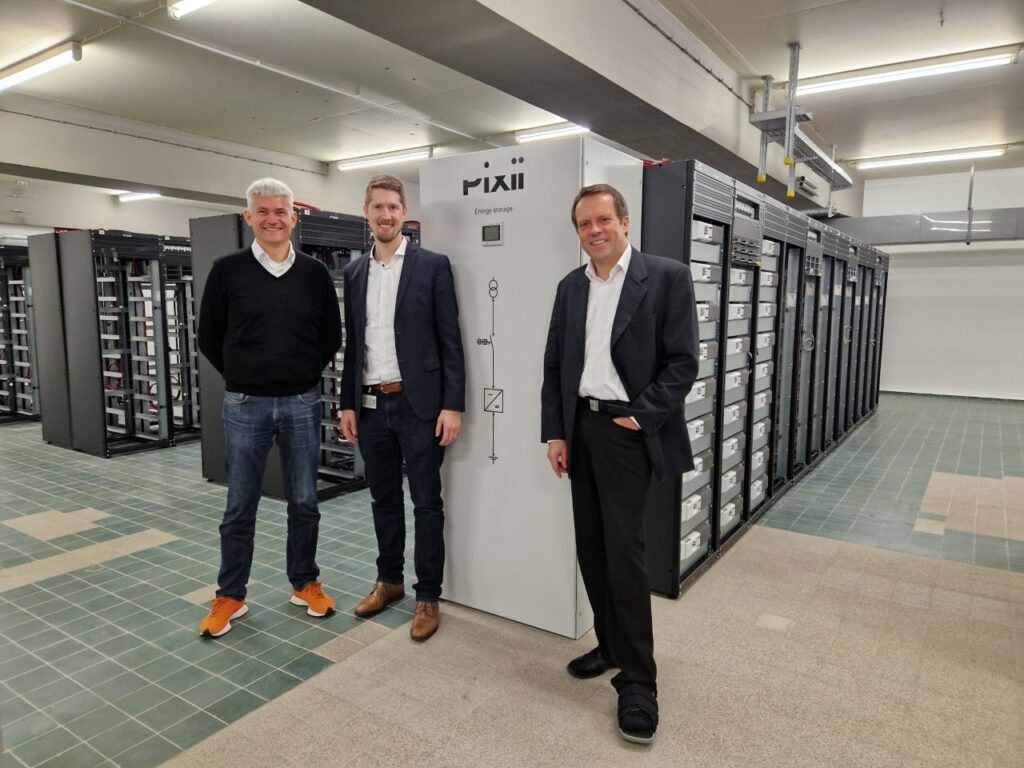
Deutsche Telekom has announced the first battery energy storage system installation in a 300MWh rollout in Germany, with Norwegian firm Pixii the technology provider.
The first system, a 1MW/6MWh unit, has been deployed at Deutsche Telekom’s head office in Munich as part of the rollout by the telecommunication giant’s Power & Air Solutions (PASM) subsidiary. The subsidiary is the energy supplier to Deutsche Telekom in Germany and for critical infrastructure in the wider IT sector.
Enjoy 12 months of exclusive analysis
- Regular insight and analysis of the industry’s biggest developments
- In-depth interviews with the industry’s leading figures
- Annual digital subscription to the PV Tech Power journal
- Discounts on Solar Media’s portfolio of events, in-person and virtual
The battery storage systems deployed for PASM will be used for peak shaving, arbitrage, maximising the use of renewable energy and participating in the German electricity market to help grid stability, the company said.
“The current energy challenges in Europe underline the need for investments in energy storage. This is key for the shift to renewable energy sources to proceed without unacceptable volatility. Battery energy storage systems are a key component in the transformation, and this marks our first big step in that direction,” says Bernd Schulte-Sprenger, CEO of PASM.
Pixii will provide its PowerShaper solution, which ranges from 10kW-1MW in size comprising up to 50kW modular containers and uses either LFP or NMC lithium-ion battery cells.
The announcement didn’t clarify whether the other battery storage systems would be located at Deutsche Telekom’s critical infrastructure or its offices, or both. Critical telecommunications infrastructure represents a big opportunity for energy storage as backup power, as the networks require millions of components to be working simultaneously in order to avoid network outages.
This also means that the backup power battery storage systems deployed needs a relatively long duration in order to give time for repairs to be made. Pixii’s first system for the Deutsche is a 6-hour one but Energy-Storage.news has been told of telecoms-focused solutions exploring durations of up to 72 hours.
Finnish telecoms firm Elisa last week announced it would aggregate battery systems across its infrastructure network into a 150MWh virtual power plant (VPP), as reported by Energy-Storage.news.
Pixii was recently announced as one of the technology providers for a ‘Neighbourhood Battery’ programme in Australia which will see 35 systems installed across the city of Ipswich, Queensland.
The Oslo-based firm describes itself as a company bringing together expertise in power conversion and energy storage with a focus on the compact, modular systems ranging from 3kW to several MW. Its key target market segments are commercial & industrial (C&I) buildings and facilities, agriculture, EV charging and distribution system operators (DSOs).
Energy-Storage.news’ publisher Solar Media will host the eighth annual Energy Storage Summit EU in London this week on Wednesday 22 and Thursday 23 February 2023. This year it is in a larger venue, bringing together Europe’s leading investors, policymakers, developers, utilities, energy buyers and service providers all in one place. Visit the official site for more info.






